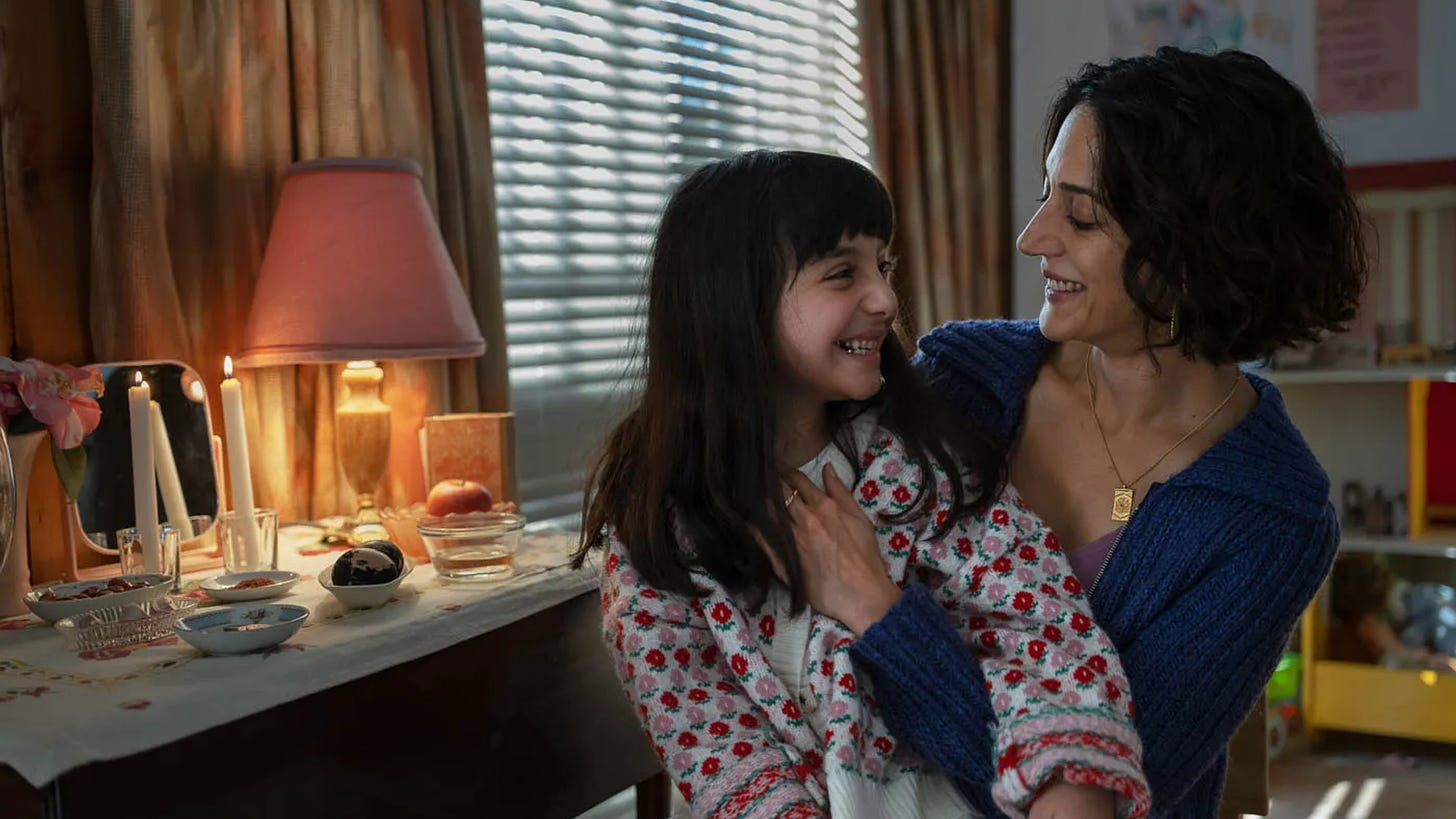Shayda
This searing drama about an Iranian woman trying to protect herself and her daughter from an abusive husband in 1990s Australia rings overly familiar notes.
I consider myself a pretty patriotic guy but even I have detected a strain of anti-foreign, and in particular anti-Islam, bias in dramas about fractured families. Iran continues to be the chief boogeyman (boogeynation?) in these films, going back to the jingoistic Sally Field (!) picture “Not Without My Daughter” around the time of the first Persian Gulf War.
The tone of these pictures is something like, “Lookit all these backward patriarchies where women have little standing as people or parents!” Which, of course, has a way of nudging America’s own complicated journey toward (or at least in the general direction of) gender parity out of the spotlight.
“Shayda” is very much in this tradition, and while an Australian rather than American movie, the notes it rings are searing if overly familiar ones.
Set in Brisbane circa 1995, it’s the story of the title character played by Zar Amir Ebrahimi, a 30-ish Iranian woman with a daughter, Mona, about age 8. She and her husband, Hossein (Osamah Sami), were both granted scholarships by their mother country to study for advanced degrees in Australia. However, hers was revoked when she separated from husband because of his continued abuse.
As the movie opens, Shayda has fled to a women’s shelter along with Mona. Her story is horrific — upon learning she intended to leave him, Hossein raped her because, under Islamic law, she cannot legally separate from him while pregnant. She has found some measure of refuge with the two older Aussie women (Leah Purcell and Bev Killick) who run the shelter.
Shayda feels disconnected and shamed from all sides. Her mother back in Iran urges her to reconcile with Hossein, arguing that once he receives his doctorate they can return and be a happy family again. Word of her separation has spread around the Iranian community in Australia and even back home, so she is shunned as a dishonored woman.
She also struggles to fit in with the other women in the shelter, including Vi (Jillian Nguyen), a vivacious Vietnamese who continues to have questionable dalliances with men, and Lara (Eve Morey), whose young son was kidnapped by his father. Shayda’s passion for Persian language, food and music is undiminished despite her troubles, and the women form their own little uneasy United Nations community inside the house.
The primary focus is on Shayda’s relationship with Mona, played by Selina Zahednia in a tender and heartbreaking performance. The kid loves both her parents and can’t understand why they can’t just be together — though on some level she understands her father has been the bad guy.
Shayda places some lentils in a bowl that she keeps wet in the sunlight, which soon sprouts and begins to grow into tall sabzeh just in time for the Iranian New Year. This little storytelling device lingers in the background, a passive reminder of Shayda’s slow but encouraging growth into a vibrant, independent woman.
Hossein is granted visitation rights with Mona, which turns into a predictable series of escalating encounters during the hand-offs. Part of the film’s challenges is the unwillingness to see Hossein as anything other than a stock representation of his culture’s patriarchal attitudes. He views Shayda and Mona as his property, or at least as things to be controlled.
Shayda has a friend, Elly (Rina Mousavi), who’s a bit more Westernized and begins to emulate her, cutting her hair and wearing less traditional clothing. There’s even the seeds of a possible romance with Elly’s cousin, Pierre (Jerome Meyer), a visiting Iranian-Canadian. His gentleness and patience are an idealized contrast with Hossein’s attitude of insistence.
Written and directed by Noora Niasari, herself an Iranian who emigrated to Australia, “Shayda” is well-told and well-acted. It also feels very much like well-trod ground, with the main character’s passivity and victimhood often standing in for any genuine venture at characterization. I’ve seen this story done before, and better.
Ironically, these films continue to arrive with regularity during an ongoing period of renaissance in Iranian cinema. I was reminded of “A Separation,” a look at a divorce in a Muslim family that’s told from their perspective rather than a judging outsider’s. As you might expect, it’s more nuanced and therefore (to me) more interesting than this film.





